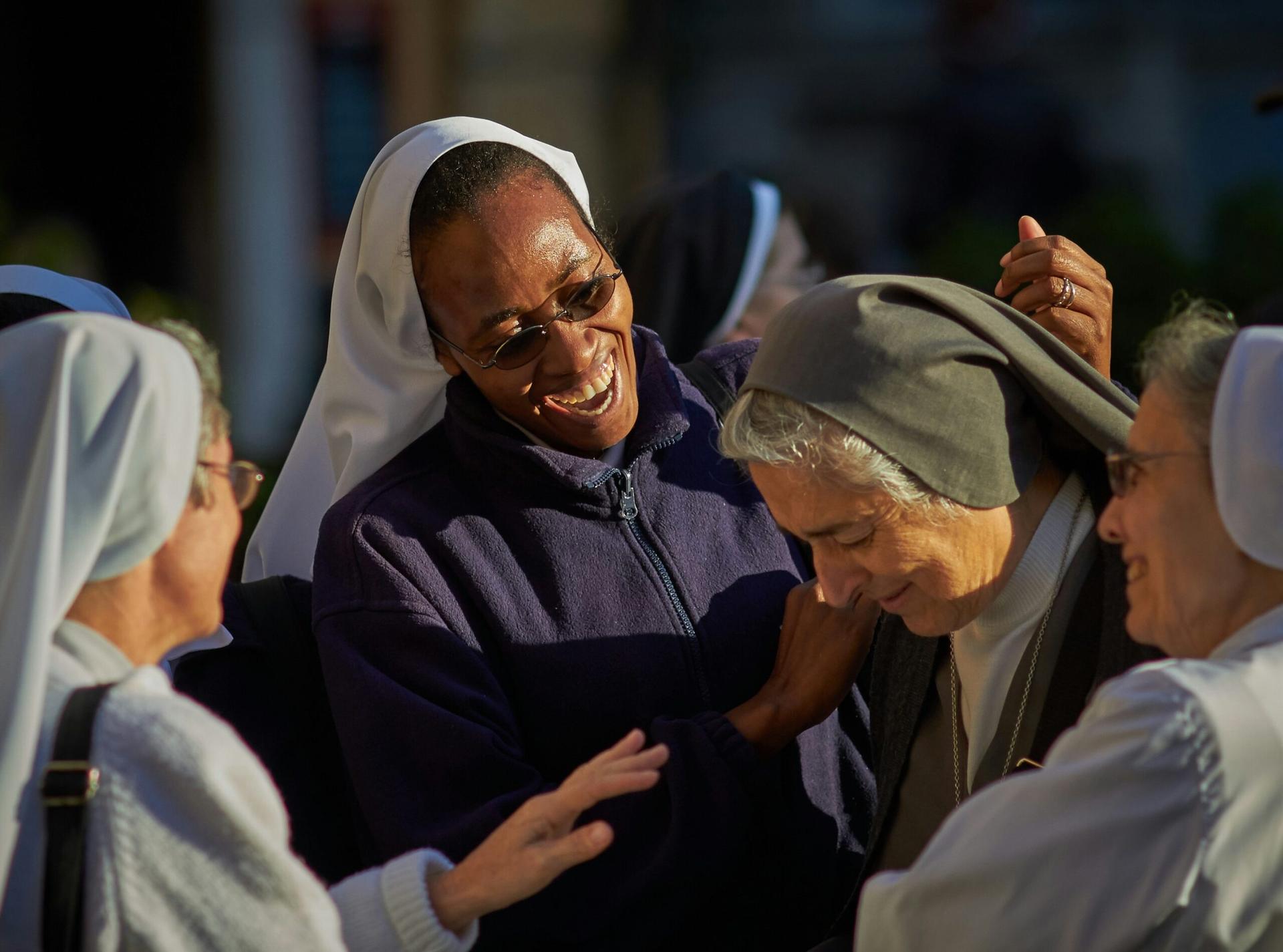YAOUNDÉ, Cameroon – In the face of histories of abuse and cover-up by the Church, a Catholic nun in Zambia has challenged Church leaders to stem the tide of abuse against women religious wherever and whenever it happens.
Sister Linah Siabana was speaking during the Symposium and 6th Annual General Meeting of the Conference of Major Superiors of Africa and Madagascar (COMSAM) in South Africa that ended May 30.
Sexual violence, she explained, encompasses a range of actions that coerce and pressures individuals into engaging in unwanted sexual activities.
“These can manifest in various forms including physical violence, emotional manipulation, or overarching power dynamics that inhibit a person’s capacity to give informed consent,” she said.
She said the tactics used may involve intimidation, threats or grooming behaviors that further complicate the victim’s ability to resist or report the abuse.
“Understanding the peculiarity of sexual abuse is crucial for recognizing the specific vulnerabilities that different demographics face, particularly women and children. These groups often experience heightened risks due to social, economic and cultural factors that can exacerbate their situations within both domestic and institutional settings,” she said.
Noting that sexual abuse represents “a profound and harrowing failure to protect the most vulnerable members of our communities,” she said Catholic leaders bear a collective responsibility in ensuring that the rights and wellbeing of those entrusted to their care are protected.
The Zambian-born nun, who is also a mental health specialist with the Missionary Sisters of Our Lady of Africa, came up with tear-provoking accounts of women religious who have been abused either by priests or by fellow Sisters.
“There is a case where a sister was abusing a fellow sister. The abused Sister went through a lot of trauma, and attempted committing suicide three times, because she had lost the sense of being religious, of being human. She felt dirty and felt that whoever looked at her was seeing what she had done,” Siabana said.
She also cited cases of formators abusing those under them, explaining that the physical and psychological toll that abuse has on the victims are incalculable
“These violations not only inflict deep emotional, psychological and physical harm on the victims, but also significantly jeopardize the integrity, trust, and credibility of our religious institutes and congregations,” she said.
She said each incident undermines “the foundation principles of compassion and care that these institutes are built upon.”
Reports of sexual abuse in the Church might have been making headlines in Europe and America, but very few such reports have been made in Africa. There is little research that has been done concerning the issue, but Siabana says it doesn’t mean abuse doesn’t exist on the continent.
“At times, we just get to know about that when a sister is pregnant,” she said.
“She will be asked to leave the congregation even without finding out how she became pregnant. And when we ask her to leave, do we offer accompaniment for her to live a life that is meaningful? Do we even ask if the person who impregnated her is a priest? Is the priest brought on board, or we let the sister go without daring to ask. We let the sisters by themselves and at times we blame them that they have been running after men,” Siabana said, as she spoke about the conspiracy of silence that usually accompanies abuse in Africa.
She lashed out against internal Church procedures that typically prioritize the institution’s reputation over the welfare of the affected individuals, leading to a minimizing of the gravity of the issues, and a focus on maintaining the Church’s integrity, rather than addressing the needs of the victims.
“As a result, the persuasive culture of silence around this topic continues to hinder justice and healing for those impacted,” she said.
She complained about the intricate structures of power within religious institutions which significantly complicates the response to sexual abuse allegations, noting that the deeply entrenched hierarchical nature of the Church fosters an environment where loyalty to institutional authority often takes precedence over the critical need for accountability and transparency.
“This loyalty frequently affects narratives of abuse, casting them as challenges to the Church’s moral standing rather than recognizing them as serious and legitimate reports of misconduct,” Siabana said.
“Consequently, survivors of abuse may face a profound pressure to remain silent, burdened by the fear of retaliation, disbelief or ostracism within their community. This silence is often compounded by a culture that prioritizes the protection of the institution over the welfare of individuals, leaving many victims feeling isolated and unheard,” she added.
Siabana outlined a range of approaches that can help abuse survivors cope with the scourge. These include creating strong reporting mechanisms, promoting education and training for women to understand signs of abuse, fostering a culture of openness and creating safe spaces where abused victims can express themselves. She said it is critical to “ensure that every voice of the survivor is heard, and every story is valued by fostering open dialogues and promoting educational initiatives within religious communities.”
“We can empower individuals to seek justice and support, transforming the narrative surrounding abuse and enhancing the protection of vulnerable populations,” she explained.
And in the spirit of synodality, she urged all of God’s people to become each other’s keeper.
“If we are to journey together as pilgrims of hope, let us be bearers of hope for one another,” she said.















